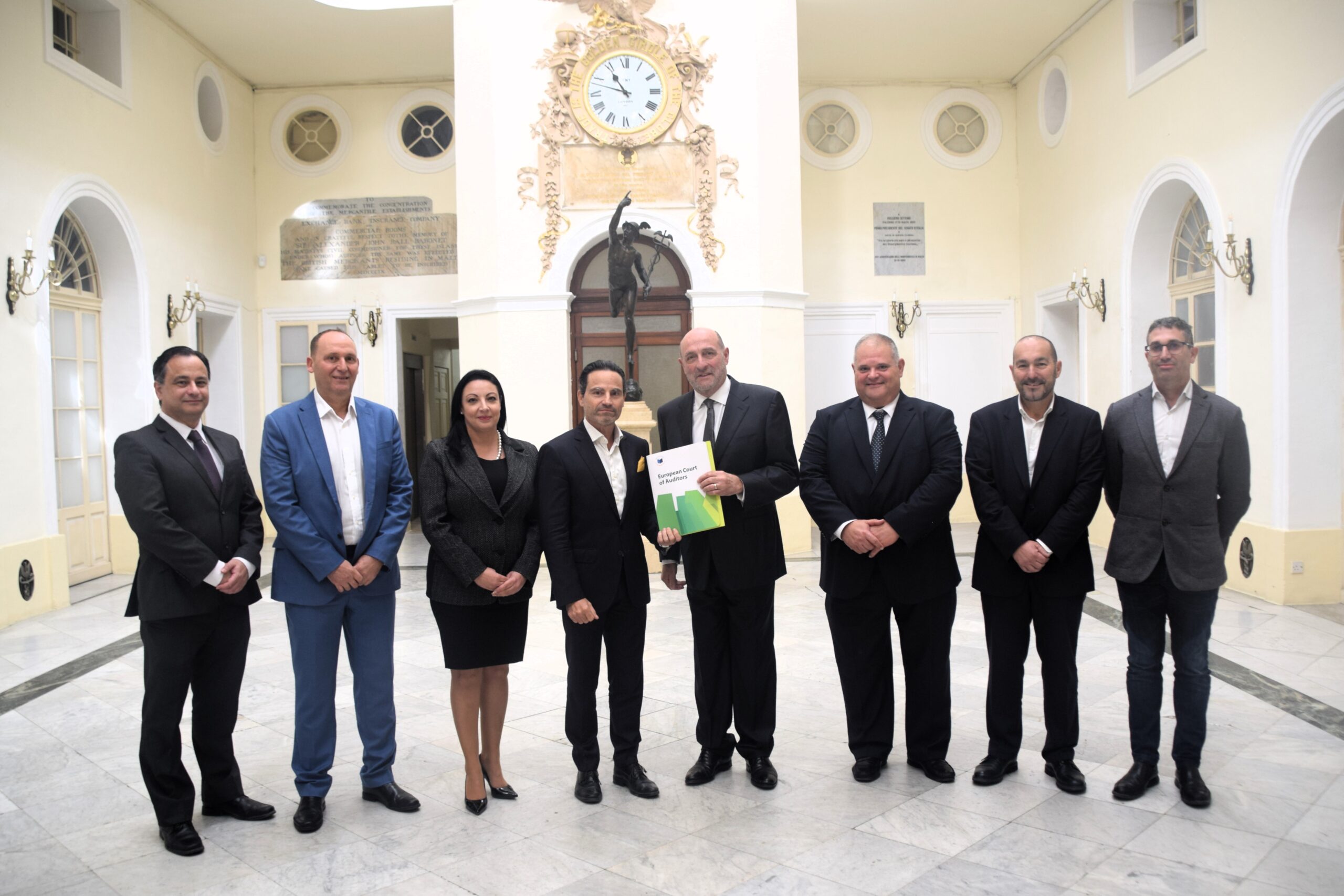Celebrating our direct investment in our people and the quality of service offered to our customers
Bank of Valletta celebrated with its people during a formal Graduation event that was attended by the Bank’s senior management, including Chairman Dr Gordon Cordina and CEO Kenneth Farrugia. Aptly named Proud of Our People, the event was the culmination of a year of online and in-person training programmes driven by the Bank’s Learning and Development Centre. The evening saw 151 employees graduating in a broad spectrum of awards and qualifications, all of which are recognized by the Malta Further & Higher Education Authority and are qualified under the Maltese Qualified Framework in MQF Levels 5 and 6.
In his brief opening address, Dr Gordon Cordina expressed his delight at witnessing the breath of learning opportunities made available by the Bank, both in-person as well as through the self-learning platform, and the keen response of its people, with several courses being overbooked within days or even hours of being launched. He went on to explain that “providing training is only one important facet of our people’s development. There is also a collective responsibility among senior management and team leads to ensure that our people are finding their jobs challenging and rewarding, whilst we approach learning with humility, grateful for the opportunities to improve ourselves and generous in sharing our knowledge with our peers.”

Speaking during the event, Kenneth Farrugia explained that the Bank recognizes the sacrifice put in by its people to pursue their studies while working full-time. In addition to the 1,100 employees who attended in-house courses, over 700 employees have attended or are attending external courses and reading for different qualifications during 2023. “As a Bank that aspires to be the Employer of Choice, we understand that our biggest asset is human capital. In a bid to truly be a learning organisation, we choose to invest in our people, through various initiatives including study grants, with 2023 seeing over 100 applications approved.” In addition, the Bank supports its people through both study loans and study leave. Referring to the Bank’s customer-driven strategy, Mr Farrugia emphasized that the Bank’s strategy hinges on its people, who are the fulcrum of its drive in various fields, including business, risk management and governance, as well as its operations and support functions.”
Ray Debattista, Chief People and Culture Officer, also addressed the new graduates, outlining the different initiatives undertaken by the Bank to strengthen its position as the Employer of Choice, through investment in technology as this year saw the Bank launching a new interactive online learning platform, and designing new courses in response to market needs, including a brand new onboarding programme. He also mentioned the Bank’s suite of benefits, both financial such as the Bank’s voluntary occupational pension scheme and non-financial like the different family-friendly measures in place, and the Bank’s Brain Waves programme that encourages people from across the organisation to put forward their recommendations and rewards them. He concluded by saying, “As an organisation, we have changed and we shall continue to change and evolve because we need to remain relevant, leaders and catalyst of change.” He reiterated his belief that the Bank’s future success is underpinned by the hundreds of people who continue to drive change and improve themselves and the service offering to our customers.”
During the brief event, every employee present received a commemorative certificate. This was followed by a toast led by Dr Tania Camilleri from the Learning & Development team. A small reception for graduates and management followed.








